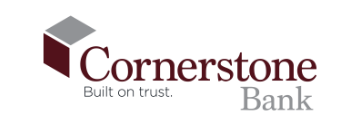Despair of ever shaking less-than-desirable credit? Been turned down for a home or auto loan due to low scores? Here’s the good news: if your score is low, you are actually in a better position to raise it than someone with a high score.
We understand that raising your credit score may seem a daunting task, and we’re here to help—starting with some practical tips.
1. Enroll in Credit Score within online banking.
If you bank with us, you can enroll* in Credit Score within online and mobile banking! This free, powerful tool provides you with insights and tools to help you raise your credit score. With this tool you’ll get free credit monitoring, unlimited full credit report access, credit score simulator to explore the best ways to improve your credit, instant access to the factors impacting your credit score and detailed recommendations on how to improve it, information to demystify how your credit score is calculated, valuable tips to protect your credit worthiness, real-time credit monitoring alerts, and more.
2. Pay credit cards off strategically.
Make a spreadsheet and rank cards by highest to lowest interest rates and balances. Pay off the highest ones first while continuing to make payments as high as you can afford on the rest.
3. Ask for higher credit limits.
Your credit score reflects the percent of your limit that you have taken out, which is called your “credit utilization.” A good goal is to spend no more than 30% of your limit, but aim for lower. Negotiate higher credit limits—but absolutely do NOT use them. This strategy also works fast: as soon as your credit card balance reflects a lower percentage of your limit, it gets reported to the credit bureaus.
4. Set up automatic payments.
Use our Bill Pay feature to ensure the minimum amount (at least) is always paid, so you don’t incur penalties. The biggest ding to your credit score is a late payment; it stays on the record for seven years! At the same time, put a note on your calendar to make an additional payment at the right time of the month so you continue to pay down the principle.
5. Pay your credit card more than once a month.
Get paid twice a month? Set an automatic payment from your checking account for each time you get paid. Aligning credit card payments with bi-monthly pay periods is a great habit. You won’t see the money and it automatically triggers points towards a positive score.
6. Deal with collections accounts.
We’ve all overlooked a past due payment, especially for something small or atypical—think out-of-pocket medical expense or caught-on-camera toll violation. Make it a policy to clear up a past due bill before it goes to collections. If it already has, deal with it by phone or online and make sure you keep a digital copy of the payment receipt.
7. Get credit for rent or utilities.
If you pay rent, it’s likely your biggest payment—and you could be getting credit for it. Rent reporting services can be used to report your on-time payments to credit reports. And while rent payments are considered by VantageScores but not FICO 8, if a future creditor looks at your reports, your on-time rent payment records will be there. It helps to show consistent payment. Experian Boost is a free service where you link bank accounts to service, and it then scans for payments to streaming services, phone and utilities as well as rent payments.
While a low credit score may seem like a never-ending battle, it’s one you can win if you take it step by step. Contact us to learn more.
*Credit Score is available to customers who are enrolled in Cornerstone Bank online and mobile banking.

 Translate
Translate